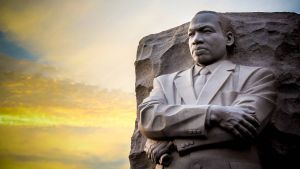Unemployment benefits put in place at the start of the COVID-19 pandemic are ending, and with their expiration comes the disturbing news that the unemployment rate for Black men and women in the country is once again back on the rise.
Thomas Franck, Spencer Kimball, and Nate Rattner of CNBC reported that based on new data from the Bureau of Labor Statistics (BLS), employers added only 235,000 new jobs to their payrolls in August — far fewer than the 720,000 expected.
While the nation’s unemployment rate still dropped to 5.2% from 5.4%, the data also revealed that as of August 2021, “Black workers are facing an even bigger struggle to find employment compared with job seekers of other races.”
According to the jobs report, while white unemployment fell to 4.5 from 4.8% in July and Asian unemployment dropped from 5.3% to 4.6%, the rate of unemployment among Black workers actually rose — jumping from 8.2% in July to 8.8% in August. (The unemployment rate for Hispanic and Latino workers also fell slightly, dropping from 6.6 to 6.4 in the last month.)
“A majority of economists and President Joe Biden pointed to the growing number of cases of the COVID-19 delta variant for sluggish overall job numbers,” CNBC reported. “Experts have also pointed to a retreat in consumer confidence for the slowdown in hiring.”
Another startling finding from the BLS report: while Black unemployment grew, labor force participation for Black workers also increased over the same period. Meaning, more Black workers are looking for work now, but it’s becoming harder and harder for them to find jobs.
In an interview with CNBC, AFL-CIO chief economist William Spriggs, former chair of Howard University’s economics department, said employers simply aren’t working hard enough to address the racial disparities and recruit qualified minority employees.
“Black workers with an associate degree saw an unemployment rate of 6.9%, while the jobless rate among white high school dropouts was 5.8%,” CNBC reported. “The unemployment rate across all races for people without high school diplomas who are 25 and over was 7%, while the jobless rate for Black people with high school diplomas in the same age category was 10%.”
Spriggs and other jobs industry experts say educational achievements like college degrees are no longer being rewarded in the workplace like they used to be, despite the long-held notion that this would always be true.
“A lot of people find jobs, but a bigger share of those who went out looking didn’t. So, the Black unemployment rate has been going up because employers are still passing over Black workers,” Spriggs said. “When you look at those numbers, it’s clear employers are saying, ‘We want workers, but not exactly.’”
Although unemployment is on the rise for Black workers, data shows that many employers have positions they want to fill but are simply unable to. The Labor Department reported a record 10.1 million jobs available in the nation at the end of June.
So, what’s the problem? Spriggs had one simple explanation: blatant, ongoing discrimination in the workplace.
“When you see Black workers struggling but the labor market doing well, that’s a sign of employers showing their preference,” he said.
Related: For more recent diversity and inclusion news, click here.


















